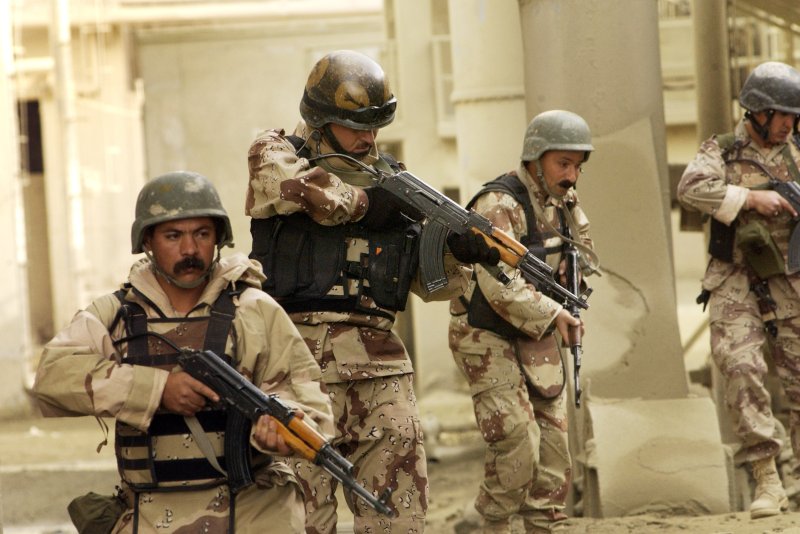Iraqi budgetary constraints from conflict and low oil prices might curb revenue needed to support counter-terrorism efforts. File photo by Aaron Allmon/U.S. Air Force |
License Photo
NEW YORK, Nov. 16 (UPI) -- Iraqi revenues are under strain from conflict and low oil prices, creating a shortage of cash needed to back counter-terrorism efforts, Moody's Analytics said.
Supported by U.S.-backed coalition forces in the air, more than 7,000 members of the Kurdish military force known as Peshmerga pushed fighters loyal to the Islamic State out of the strategic northern city of Sinjar last week. During the weekend, the U.S. Department of Defense said coalition aircraft conducted 12 airstrikes in Iraq, including four near Ramadi that destroyed 10 Islamic State fighting positions.
The vacuum left by simmering Syrian civil war has been filled by elements with or loyal to the terrorist group calling itself the Islamic State. More than five years after U.S. President Barack Obama declared an end to combat operations in Iraq, the country is feeling severe economic stress from conflict.
"Iraq's economy and government finances have been hit by two shocks: the rise of the Islamic State and falling oil prices since mid-2014," Moody's Analytics said in a research note Monday.
The International Monetary Fund last week said the Iraqi gross domestic product should grow by about 1.5 percent in 2015 because of an increase in crude oil production. Some of the growth in production comes from territory in and around the Kurdish north, where some of the battles against the IS -- also identified as Daesh, ISIS and ISIL -- have taken place, including in Sinjar.
Iraqi oil production for October was around 4 million barrels per day, a 4.6 percent decline from the previous month. Despite the decline, October's output was 3.5 percent higher than the average for second quarter 2015.
The IMF said the Iraqi economy is operating in a "difficult environment," with revenues and its balance of payments impacts by conflict and low crude oil prices, off more than 40 percent from last year.
"Government revenues have been declining since 2013, and we expect them to drop another 35 percent in 2015 versus 2014," Moody's added.
Moody's adds that plans to increase oil production are jeopardized by economic strains and revenues could make it more difficult to fund military operations against the Islamic State.















